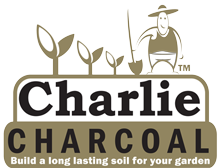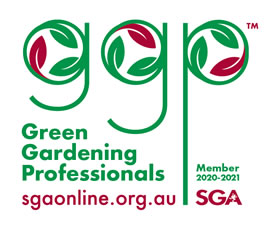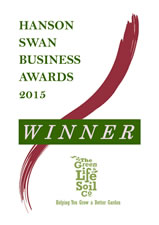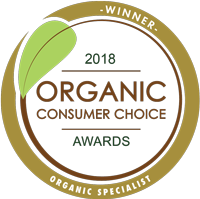| item(s), Total: $0.00 View Cart |
| Shopping cart is empty. |
Hello & welcome to NOVEMBER!
Remember the next Kalamunda Garden Festival is on Sunday, December 3rd at Stirk Park in Kalamunda. With Gardening Australia presenters, local gardening experts and a whole heap of knowledgeable peeps in the one spot - its a day not to be missed. Tickets are available cheaper on line so hop on over to their website and grab them while you can! GLSC is a sponsor of one of the speaker's stages - so keep an eye on our FB page a little closer to the time as we will have a few double passes to give away. It's been a long time coming; but we're finally rolling out the new branding on our updated bag designs! The first cab off the rank is Blueberry Mix - but over the next year you'll see lots more coming through GLSC (or your favourite retailer of our products!). We hope you like them! Remember if plastic's not your bag (see what I did there??) come on in and grab a scoop in a trailer - share it with a friend, and you'll save yourself a bit of money as well as saving the plastic! Unfortunately we're unable to simply fill containers you bring in - but if you bring in a tarp, we can tip a scoop onto it and you can fill them yourself (and simply bundle up the tarp and tootle off with the remainder). Thanks to those of our FB fam who responded to my post calling for newsletter topic suggestions... I've got the list for future reference and will see what we can do to address some of your most pressing gardening issues. Remember you're always welcome to come on in and chat to any of our friendly and experienced team. Samara is our native plant expert and a qualified horticulturalist, Denise is a permie on a property, and Lesley is a very keen food forester on a typical Perth suburban block... these three ladies are the backbone of our retail team and their experience invaluable. Brodie & Tess mostly work in other areas of the business but provide back up in the shop - and they're both keen gardeners too! So come on in and see us soon @ GLSC for your spring garden goodies & summer garden solutions! Until next month - happy gardening! Jobs for the November garden
What to Plant Now
Globe artichokes, Asian greens, Basil, Beans (Snake beans are a heat loving variety), Beetroot, Capsicum, Chilli, Carrots, Celery, Choko, Cucumber, Eggplant, Ginger, Leek, Lettuce, Melons, Mint, Okra, Parsley, Parsnips, Pumpkin, Radish, Rocket, Rosella, Silverbeet, Spring onion, Squash, Strawberries, Sweet corn, Sweet potato, Tomato, Zucchini. Whether you're after seeds or established seedlings, we have fresh stock arriving weekly. Come and see us for advice and all you need to have a fabulously productive garden. Don't forget to include some flowering plants/annuals with your vegies - they add lovely colour and help with attracting all the good bugs & pollinators to your patch. A tip I received from a biodiversity specialist is to plant lots of yellow and blue flowering plants - insects seem to prefer these; and it will help build the food chain. (Did you know that most insects can't see red?) Taking it Easy! (Home Grown Vegies to Try)Someone on Facebook suggested I do a piece on "the easiest vegies to grow for beginners in summer". A great idea! Although that really does open up a can of worms - because we're all different in our gardening styles, our soil types differ, and it's tricky to make guarantees when it comes to "it's sooo easy - anybody can grow it!" So I preface this article with a disclaimer aimed to provide solace should you have a poor track record with any of these vegies. The good news is that each season offers us a fresh start - so if something hasn't worked; try a different variety, a different location, and different care techniques! Anyhoo - here are my pics on what to try, if you're new to growing vegies in WA.
2. Tomato. Well I can hear the gasps of disbelief already - tomatoes are THE most popular vegie for home gardeners; but they can be fraught with loads of problems too. They are susceptible to many different diseases; but they're still worth growing. For newbie gardeners, try a cherry tomato variety. They tend to be a little more robust, and the smaller fruit will keep on keeping on for a long time. If you have experienced disease issues - try growing them in pots or planters in fresh soil. They need a bit of space though - 30L size pots or larger is recommended. Watch for the dreaded budworm and if necessary treat with dipel as soon as fruit begins to form. This will prevent the teensy caterpillars boring into the fruit and spoiling them from the inside out. Deep plant your seedlings (removing at least the bottom pair of leaves and bury up to the next set) as this encourages more roots to form up the stem which leads to faster and more robust growth. Feed your tomato plants with blood & bone and potash every 4-6 weeks. 3. Cucumber. These little guys grow on a vine, so ideally a trellis to climb will be useful and allow good airflow around your plants. Otherwise, if in a raised bed, let them trail down the side - but watch out if the plant and fruit are in contact with the ground - as slaters can give them a good chomp. A good hardy variety is Armenian. You don't tend to find them in the shops, but seeds are readily available and they grow very well in our climate. Pick when young for a sweeter fruit, and keep up the watering. Bitter cucumbers mean you've left them too long before harvesting, or they're lacking water.
5. Corn. Corn does take up a bit of room but it is a fun vegie to grow if you've never tried it. Fresh corn off the cob is delicious picked and cooked straight away and can even be eaten raw if you so desire. Corn is wind pollinated so rather than put it in a long row, plant it in a group - leaving about 25-30cms between plants. Corn likes fertile soil and lots of water so feed it regularly with blood & bone and some fish hydrolysate. While you can find seedlings ready to plant, it grows very easily from seed so maybe give that a go for better value? Corn grows relatively tall so can be helpful as a shade provider for other plants. Try a few pumpkin plants around the base which can act like a living mulch. If you're really looking to maximise space check out 'the three sisters' growing method of beans/corn/squash (pumkin).
7. Radish. One of the fastest growing vegies - scatter some radish seed around your garden, keep the soil damp, and within days they'll be germinating. In a few short weeks you'll be picking crunchy, fresh radish. They're great for kids to grow, and useful little fillers between slower growing vegies. Radish are healthy for you and a great addition to salads. Add them to coleslaw, kim chi, or pickles. And you can cook with them too - roast them with new potatoes for an interesting twist - they're a little like turnips. Leaves are edible, and radish are packed with antioxidants so they're good for you, too! 8. Spring Onions. Great value and soooo easy to grow - grab a pot of spring onions for your garden. You'll find they'll come in a clump as multiple small seed is spread in the pots to germinate. If you carefully wash off the soil, you can separate the onions and you'll end up with many, many single plants. Space them out in your garden, give them a good liquid feed with kelp & fish hydrolysate regularly, and they'll soon take off. You can harvest spring onions at any stage - but once they're larger, snip with scissors just above ground level and the plant will grow again. So once you've got a crop growing, you'll have them for years. 9. Pumpkin. Choose one of your favourite varieties to eat, and put in a seedling or two. Just be aware pumpkins grow on a sprawling vine, so they do need a bit of room. If you have raised beds, you can plant them on the edges and allow them to trail over the side. They're not fast growers; the vines will spread and take some time to produce both male and female flowers before you'll find fruit setting. And then the pumpkins need to be on the vine for quite a while to grow and mature - you harvest towards Autumn. But basically apart from a few issues with powdery mildew (in humid conditions) and things like slaters and rats - they're quite self sufficient and don't need a lot of fussing; just regular watering, occasional feeding and mulching the soil.
So there you have it! Ideas on some things to get growing in your vegie patch NOW for a summer harvest! If you need more ideas, seedlings or seeds - do come in and see us. We've got loads of heritage variety seeds and fresh seedling stock coming in weekly. Why Save Your Own SeedsIf you grow heritage varieties of vegetables, you have the power to save your seeds from one season to the next. This not only saves you money but also contributes to the evolution of your plants ~ by selecting the best and strongest plants in your garden and saving their seeds, you can develop plants perfectly adapted to your local growing conditions. These plants are more resilient against pests and diseases, creating a win-win situation for you and your garden. Getting Started with Seed Saving
During flowering and early seed development, make sure the plant receives sufficient, regular water. However, as the seeds mature, keep the plant slightly on the drier side to prevent fungal diseases. Harvest and store the seeds as soon as they're ready. (pictured right - fluffy globe artichoke seeds. The actual seed part is at the base - the fluffy parachute is a method to distribute the seeds in the wind.) Saving Different Types of SeedsSome seeds, like lettuce, brassicas, peas, beans, onions, and corn, can be simply dried and stored. Others require some processing. Dry seed heads can be tapped or shaken over a container to collect the seeds, which can then be sieved to remove waste material. Peas and beans should be removed from their pods, while corn should be separated from dry husks.
Processing SeedsSome seeds, like tomatoes, cucumbers, melons, and eggplants, need processing before saving. For tomatoes, scoop out the seeds into a jar with a little water. Store in a warm place, and fermentation will begin. After a few days, remove the gel-like coating that forms on top and rinse the seeds thoroughly. Allow them to dry in a well-ventilated area. Squash and eggplant seeds also benefit from fermentation to improve germination rates and ensure they are disease-free. Natural Hybridization
The Power of Seed SavingOnce you've saved your seeds, you can share them, contribute to a local seed bank, and grow your crops year after year without relying on external sources. So, why not give seed-saving a try this summer? It's a rewarding and sustainable way to ensure a future filled with diverse and healthy plants in your garden. The Green Life Soil Co only sells seeds that are heritage & non-hybrid; meaning that any of the seeds you start with will be good for seed saving; providing you follow 'the rules' about cross pollination above. It's definitely a worthwhile thing to do - Covid taught us a few things about food security, and the commercial availability of seed can always be variable. Having your own store of seed is something of a safety net and it's not difficult; it just takes a little effort! VIP Special Offer
Blueberry mix is also fabulous for other acid loving plants - so gardenias with their gorgeous perfume, azaleas, camelias - or, mix it with alkaline soils to help bring down the pH when planting more neutral loving plants. Unfortunately this offer is available in store only - and up until close of business Thursday, 30th November. Photo Competition WinnerThis month's winner is Peter N. from Roleystone who sent in his photo via Facebook. He lives on a big block - The block is 4000m2 and says "the pond was a natural soak before it was developed and is fed by a natural spring that runs all year." Who's envious??!!! I'm sure you'll agree it's a lovely vista!
Thanks Peter for sending in your photo. Remember - next month it could be YOU. Either email or send via FB with the heading "photo competition". Tell us where your garden is, and something you're growing, or something you love or something you've learnt! Everybody loves seeing other people's gardens, and we all learn from each other. There's a $50 store credit to spend with us each month - you've got to be in it to win it so get snapping & sending! Retailer UpdatePlease support your local independent retailer who supports us! The specialist retailers listed here will be happy to give you gardening advice and help you with our products - please call to check what lines they carry as they can't stock all of our products (but may be willing to get stock in for a custom order - if you ask nicely!). Some of these fabulous retailers also offer a home delivery service (marked with *) - so why not go local? (Please contact the store directly for details.)
Bar Botanik - North Perth 9227 6758 (Indoor Potting Mix & Aroid Mix only) Ardess Nursery (Albany) 9842 9952 THANK YOU for being part of our Green Life family! We hope to see you in store soon. Check out our newsletter next month & stay up to date with our Facebook and Instagram pages for announcements, stock arrivals and general good gardening vibes! |



 We're well & truly into Kambarang - the 2nd spring in the Noongyar calendar, where the weather is warming, the reptiles are on the move, and the first flush of winter wildflowers have finished. Summer is just around the corner; but we do have a bit of 'all over the place' spring weather ahead, no doubt! There's still time to get your spring vegies in the ground now - and it's definitely time to mulch! I hate to mention the "C" word but Christmas is not far away - so it's time to get the place ship shape in time to kick back for the summer holidays.
We're well & truly into Kambarang - the 2nd spring in the Noongyar calendar, where the weather is warming, the reptiles are on the move, and the first flush of winter wildflowers have finished. Summer is just around the corner; but we do have a bit of 'all over the place' spring weather ahead, no doubt! There's still time to get your spring vegies in the ground now - and it's definitely time to mulch! I hate to mention the "C" word but Christmas is not far away - so it's time to get the place ship shape in time to kick back for the summer holidays. Check your garlic! It is getting close to harvest time (and I've seen on Facebook many have harvested their crop already). Depending on what variety you planted, and when, the tops may well be yellowing and have fallen over. Ideally, about a quarter of the leaves are still green. Do carefully run your fingers down the stem to check on the bulb development. 'Wet garlic' is when the bulbs are picked too soon. They need to dry off a little in the ground; it's this drying off process that allows the papery walls to form between the individual cloves. By carefully digging around your garlic (or harvesting one plant) you can gauge where your crop is at. Once harvested, don't wash the bulbs; hang or place on a wire rack and allow to dry in an airy place out of the sun for a couple of weeks. We checked ours yesterday and they've still got a ways to go yet!
Check your garlic! It is getting close to harvest time (and I've seen on Facebook many have harvested their crop already). Depending on what variety you planted, and when, the tops may well be yellowing and have fallen over. Ideally, about a quarter of the leaves are still green. Do carefully run your fingers down the stem to check on the bulb development. 'Wet garlic' is when the bulbs are picked too soon. They need to dry off a little in the ground; it's this drying off process that allows the papery walls to form between the individual cloves. By carefully digging around your garlic (or harvesting one plant) you can gauge where your crop is at. Once harvested, don't wash the bulbs; hang or place on a wire rack and allow to dry in an airy place out of the sun for a couple of weeks. We checked ours yesterday and they've still got a ways to go yet! Get your herbs going! Many herbs respond to the warmer weather; plant them into improved soil and water regularly to be enjoying fresh & flavourful herbs for your summer entertaining & Christmas cooking. If you're wanting to give potted herbs (or potted colour) for Christmas gifts - now's the time to select your pot, choose your gift, and pot it up. Look after it and by the time Christmas comes along it will have settled into its new pot, and be looking lush and lovely - ready to give away. It's the PERFECT time to plant Basil - fabulous companion plant and flavour partner to your tomato crop. See our
Get your herbs going! Many herbs respond to the warmer weather; plant them into improved soil and water regularly to be enjoying fresh & flavourful herbs for your summer entertaining & Christmas cooking. If you're wanting to give potted herbs (or potted colour) for Christmas gifts - now's the time to select your pot, choose your gift, and pot it up. Look after it and by the time Christmas comes along it will have settled into its new pot, and be looking lush and lovely - ready to give away. It's the PERFECT time to plant Basil - fabulous companion plant and flavour partner to your tomato crop. See our  Mulch. Now is the perfect time to get some
Mulch. Now is the perfect time to get some  Thin your stone fruit - it's tough to do, but it means you'll end up with larger and better quality fruit with the ones you leave on the tree. Organise your fruit fly netting or exclusion bags now so that fruit is protected by the time it starts to soften and be vulnerable to fruit fly strike. If you use baits and Eco-Natural Lure - now's the time to get those prepared too. We sell
Thin your stone fruit - it's tough to do, but it means you'll end up with larger and better quality fruit with the ones you leave on the tree. Organise your fruit fly netting or exclusion bags now so that fruit is protected by the time it starts to soften and be vulnerable to fruit fly strike. If you use baits and Eco-Natural Lure - now's the time to get those prepared too. We sell  1. Zucchini. Whether you grow from seed or buy healthy seedlings (tip - seedlings are easier) zucchini tend to be very rewarding plants once they get established. They need a bit of space - maybe up to 75cms - 1m to spread, and the fruit/zucchini are formed along the stem. Once they begin to flower and set, they keep on coming. One or two plants will keep you in zucchini fritters all summer. Black Beauty or Golden Zucchini (pictured right) are two of the most common and hardy varieties.
1. Zucchini. Whether you grow from seed or buy healthy seedlings (tip - seedlings are easier) zucchini tend to be very rewarding plants once they get established. They need a bit of space - maybe up to 75cms - 1m to spread, and the fruit/zucchini are formed along the stem. Once they begin to flower and set, they keep on coming. One or two plants will keep you in zucchini fritters all summer. Black Beauty or Golden Zucchini (pictured right) are two of the most common and hardy varieties. 4. Lettuce. Some of our favourite (and more heat tolerant) varieties are Cos, Freckles and Oakleaf. The thing about growing lettuce in summer is to provide them with PLENTY of moisture and shade during the hottest part of the day & on extreme temperature days. Pick the leaves early in the day (bitter compounds increase as the day heats up). If your lettuce bolts to seed, it's stressed. More water, more shade and definitely mulch the soil. Grow them close together for protection, or as an understorey plant, and for watering efficiency.
4. Lettuce. Some of our favourite (and more heat tolerant) varieties are Cos, Freckles and Oakleaf. The thing about growing lettuce in summer is to provide them with PLENTY of moisture and shade during the hottest part of the day & on extreme temperature days. Pick the leaves early in the day (bitter compounds increase as the day heats up). If your lettuce bolts to seed, it's stressed. More water, more shade and definitely mulch the soil. Grow them close together for protection, or as an understorey plant, and for watering efficiency. 6. Basil. Ok so it's herb rather than a vegie but it definitely deserves a spot in your summer garden. Basil is a fabulous companion plant for tomatoes - both to grow and eat together! Homemade pesto is easy to make and freeze, and leaves are great added to salads and lots of other summer foods. There are lots of different types - try one with frilly leaf or purple leaves (or even purple, frilly leaves!) - for some great contrasting foliage in your garden. Basil will grow happily in pots if you're short on space.
6. Basil. Ok so it's herb rather than a vegie but it definitely deserves a spot in your summer garden. Basil is a fabulous companion plant for tomatoes - both to grow and eat together! Homemade pesto is easy to make and freeze, and leaves are great added to salads and lots of other summer foods. There are lots of different types - try one with frilly leaf or purple leaves (or even purple, frilly leaves!) - for some great contrasting foliage in your garden. Basil will grow happily in pots if you're short on space. 10. Sweet potato is an easy plant to grow in summer - it thrives in hot weather. They are a spreading plant so will take up a bit of space; but you can use them as a living mulch around fruit trees (or even on your verge!) - providing you put them in improved soil and keep up the water. While you will find sweet potatoes in nurseries as seedlings once the weather warms up - it's extremely easy to start your own 'slips' - we've got advice on
10. Sweet potato is an easy plant to grow in summer - it thrives in hot weather. They are a spreading plant so will take up a bit of space; but you can use them as a living mulch around fruit trees (or even on your verge!) - providing you put them in improved soil and keep up the water. While you will find sweet potatoes in nurseries as seedlings once the weather warms up - it's extremely easy to start your own 'slips' - we've got advice on  To begin saving your own seeds, look for parent plants that are flavoursome, high-yielding, and less susceptible to pests and diseases. Once you've found such a specimen, ensure it stays healthy with regular watering, feeding, and organic pest and disease management. Remove any diseased plants around it to maintain a healthy environment.
To begin saving your own seeds, look for parent plants that are flavoursome, high-yielding, and less susceptible to pests and diseases. Once you've found such a specimen, ensure it stays healthy with regular watering, feeding, and organic pest and disease management. Remove any diseased plants around it to maintain a healthy environment. Allow your seeds to dry thoroughly in a well-ventilated and dark spot before storing them in envelopes, resealable plastic bags, or jars, making sure to label them with the variety and date for future reference. Consider adding Diatomaceous Earth to protect them from insects. Most seeds will remain viable for 2-3 years, and even older seeds can still germinate. (Pictured right - onion seed head ready to harvest the seeds.)
Allow your seeds to dry thoroughly in a well-ventilated and dark spot before storing them in envelopes, resealable plastic bags, or jars, making sure to label them with the variety and date for future reference. Consider adding Diatomaceous Earth to protect them from insects. Most seeds will remain viable for 2-3 years, and even older seeds can still germinate. (Pictured right - onion seed head ready to harvest the seeds.) Certain plant varieties may cross-pollinate with others in the same family, forming natural hybrids. If you want to save 'pure' seeds from one variety, consider growing only one variety at a time, maintain the recommended distance between varieties, use insect-proof netting to prevent cross-pollination, or remove flowers from unwanted strains as they begin to set.
Certain plant varieties may cross-pollinate with others in the same family, forming natural hybrids. If you want to save 'pure' seeds from one variety, consider growing only one variety at a time, maintain the recommended distance between varieties, use insect-proof netting to prevent cross-pollination, or remove flowers from unwanted strains as they begin to set. To celebrate our NEW LOOK Blueberry Mix bags, we're offering blueberry bags in store only for $10 each!!! So if you're looking at repotting your blueberries, or have always wanted an excuse to get one (or two) plants - now's the time! Do come in and ask for the VIP members offer.
To celebrate our NEW LOOK Blueberry Mix bags, we're offering blueberry bags in store only for $10 each!!! So if you're looking at repotting your blueberries, or have always wanted an excuse to get one (or two) plants - now's the time! Do come in and ask for the VIP members offer.  We get all types of gardeners @ GLSC. Vegie growers & food forest farmers; rural property people, lawn aficionados, rose lovers - and generally we've got something which can help anyone's garden!
We get all types of gardeners @ GLSC. Vegie growers & food forest farmers; rural property people, lawn aficionados, rose lovers - and generally we've got something which can help anyone's garden!





















